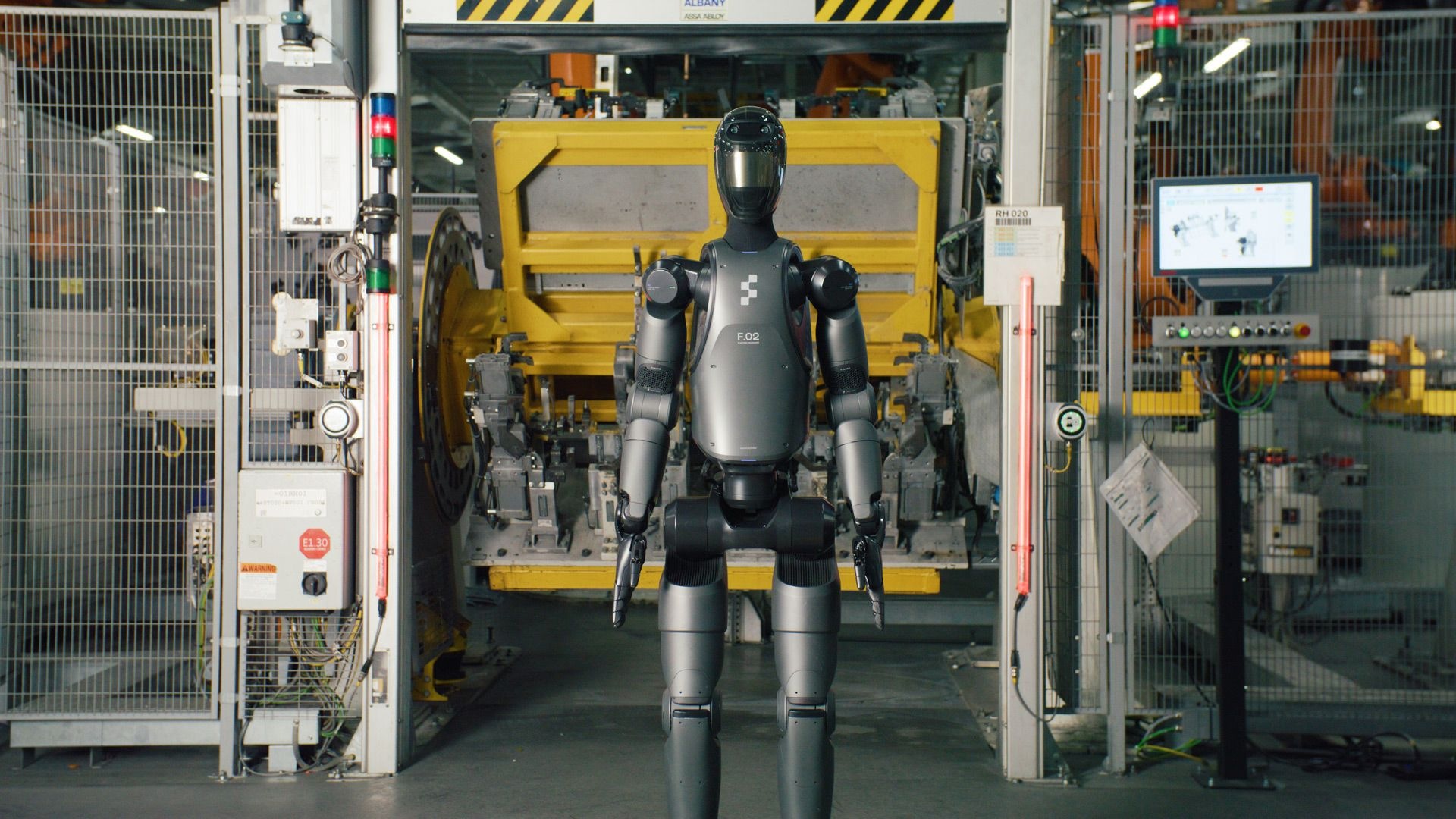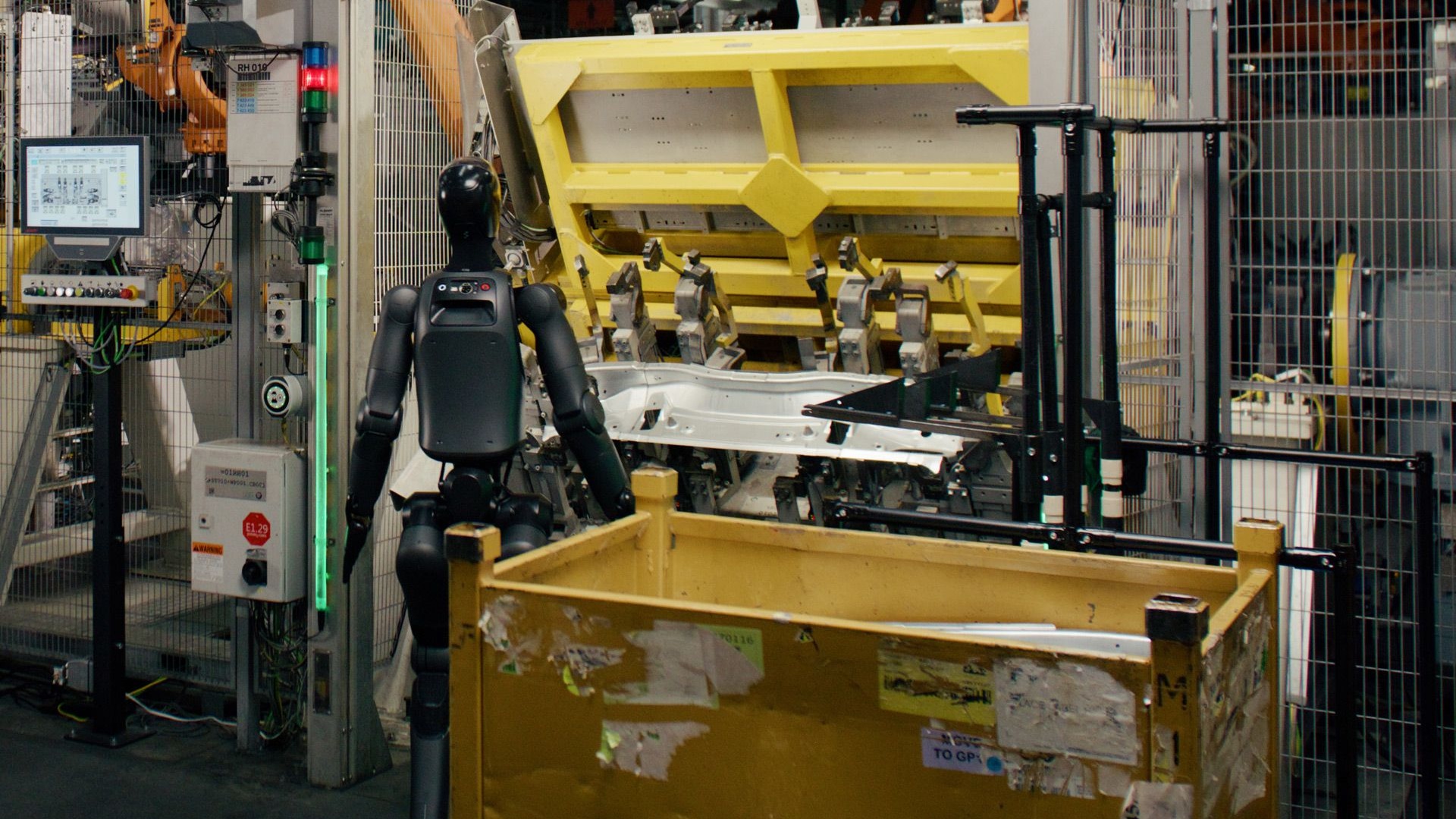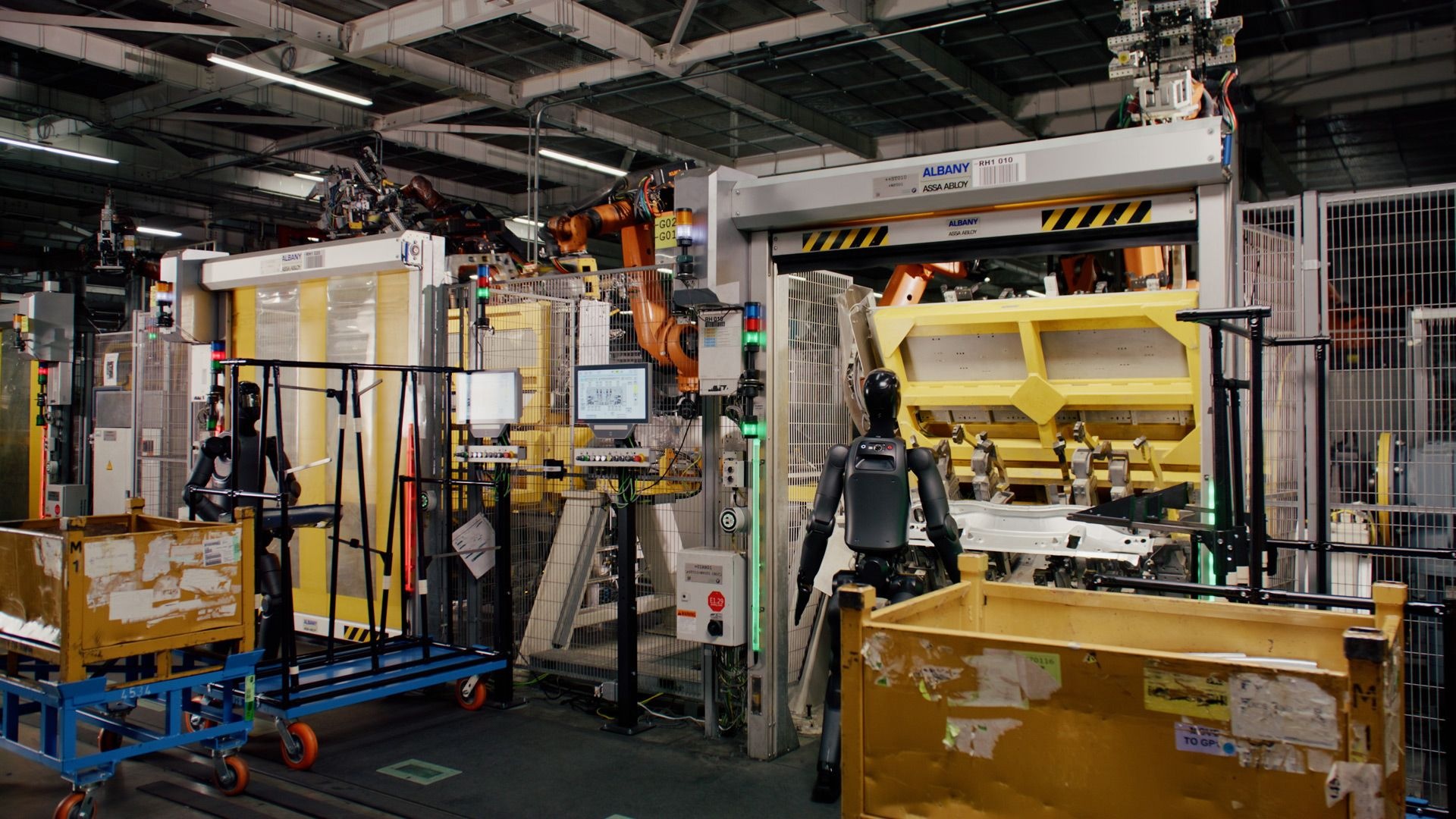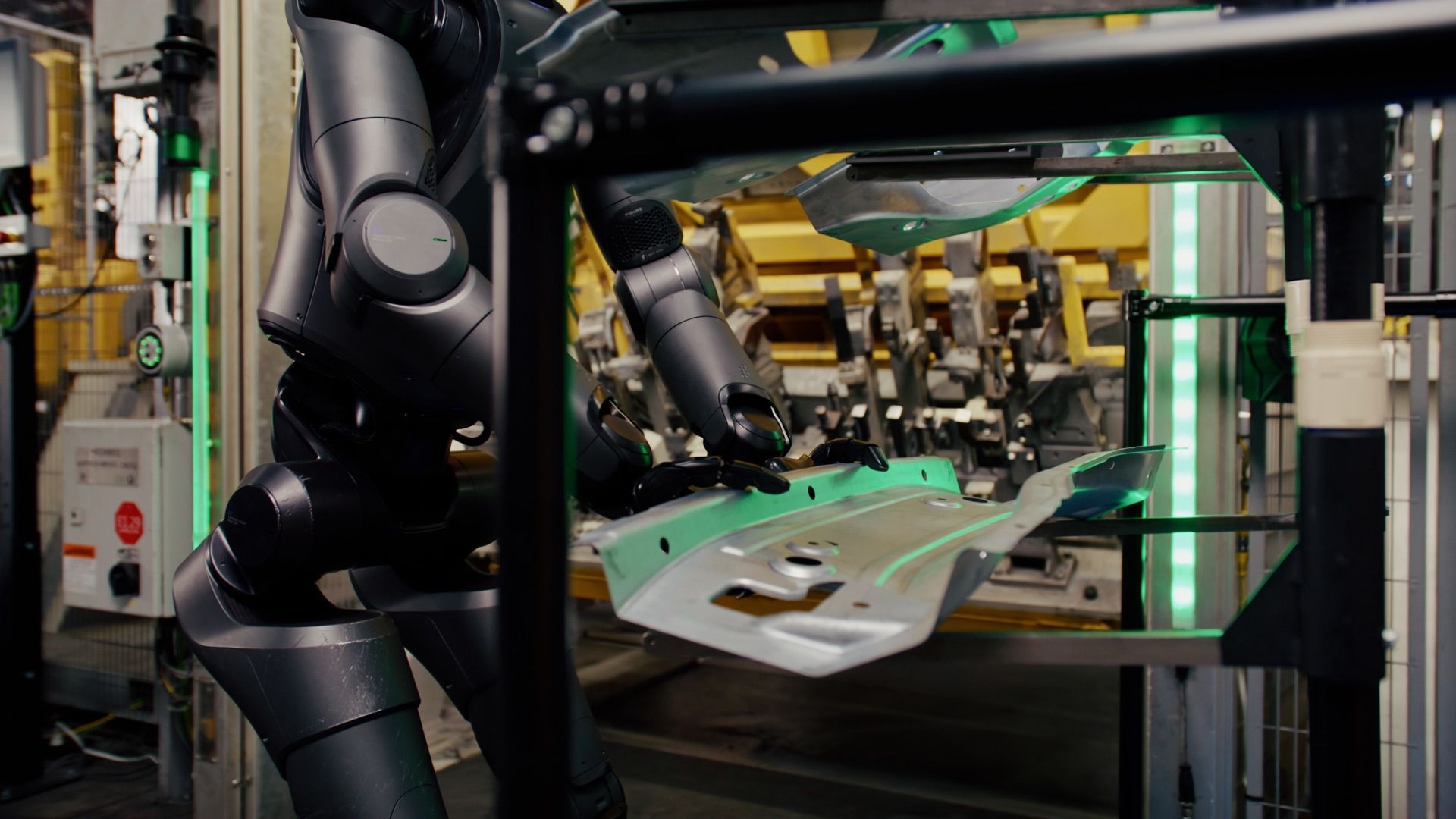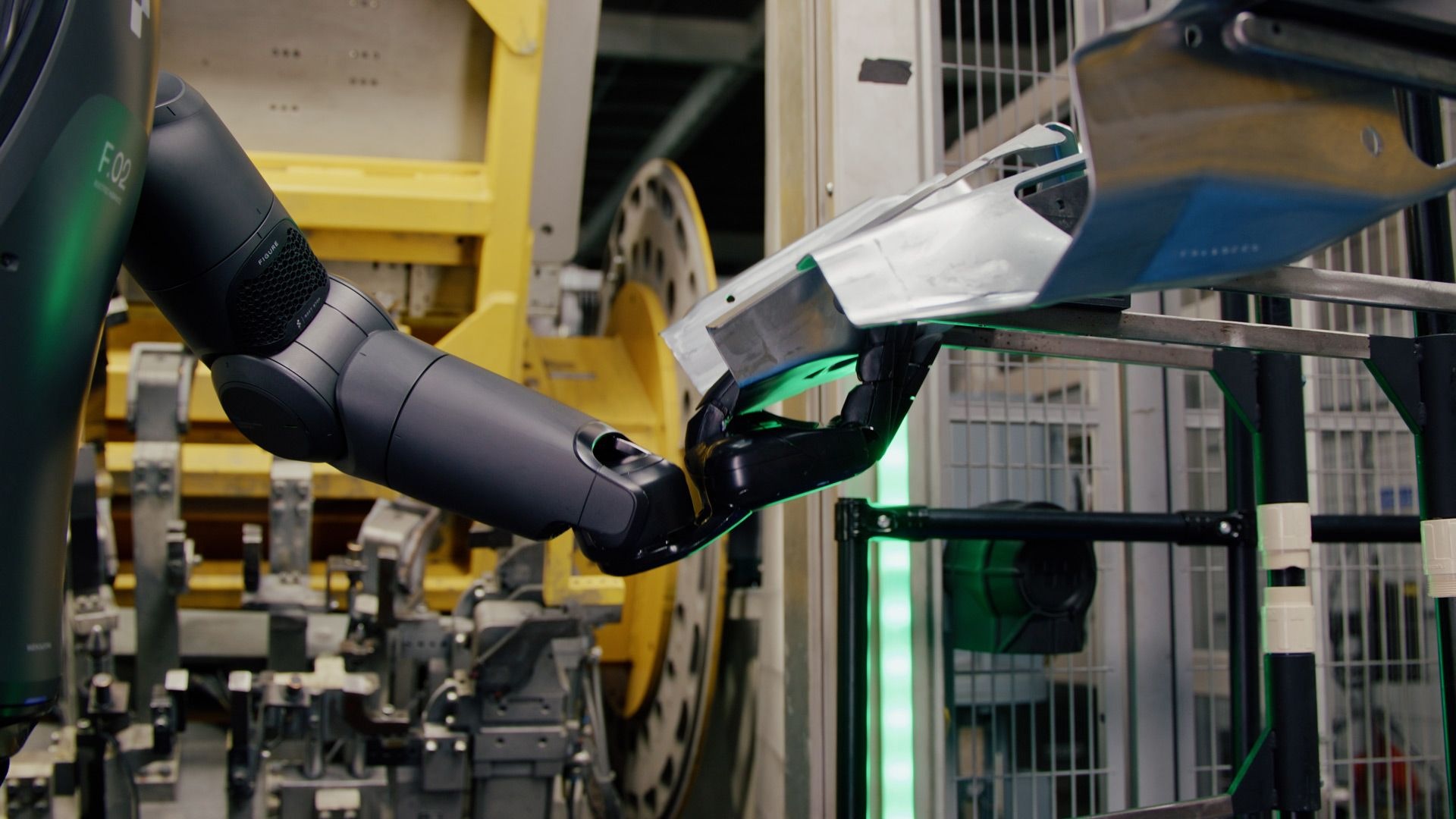Robots have been used in car production for decades, but humanoid robots that can learn on the job using artificial intelligence might be coming to plants in the future.
A number of companies are working to make that future a reality, including Tesla which in 2021 revealed a humanoid robot called Optimus. Another is Figure, a California startup whose latest 02 humanoid robot recently completed a successful test program at BMW's plant in Spartanburg, South Carolina. The company previously demonstrated an earlier 01 robot used for training at the plant. The 02 features more computing power, better cameras and sensors, and improved maneuverability.
BMW on Tuesday said the Figure 02 completed a trial lasting several weeks at the Spartanburg plant. Among the tasks it handled was inserting sheet metal parts into specific fixtures, which were then assembled as part of a vehicle chassis. According to BMW, the robot needed to be particularly dexterous to complete this production step.
Although the tasks being tested are very basic, such low-skill, repetitive, and physically demanding work is ideal for AI-powered robots like the 02. The robot uses neural networks to learn and perfect the various tasks, and could one day perform similar tasks without the need to be explicitly programmed.
Since the robots are built to operate in environments originally designed for humans, companies can implement them without the need for costly factory floor redesigns. Additionally, Figure’s 02 model incorporates AI-powered language models, allowing for more natural interactions with its human co-workers.
BMW said the results are promising, and that it is now looking at possible applications for humanoid robots in production. However, the automaker hasn't indicated when the first robots will work at one of its car plants, and whether the robots will be replacing any human workers.
Mercedes-Benz in March signed an agreement with rival robotics startup Apptronik which is developing a robot known as Apollo, though the automaker hasn't said whether it has tested any of the robots at its plants.
